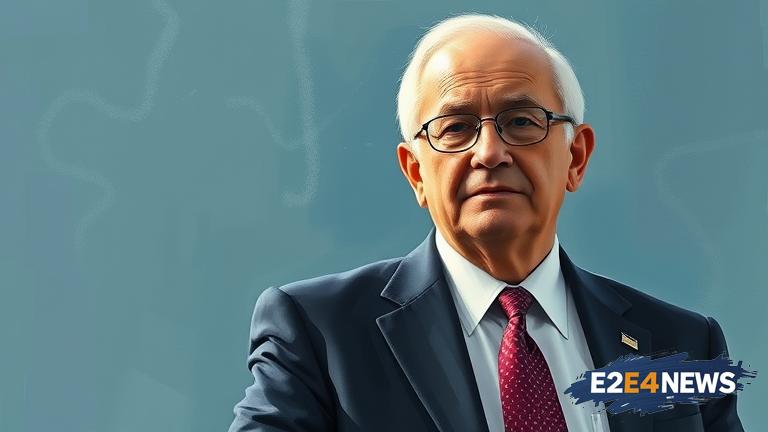Klaus Schwab, the German economist and founder of the World Economic Forum, has been at the center of a maelstrom of controversy in recent months. The 85-year-old Schwab, who has been instrumental in shaping the global economic agenda, has faced a barrage of criticism and backlash, leading to a precipitous decline in his reputation and influence. The World Economic Forum, which was founded by Schwab in 1971, has been a premier platform for global leaders, intellectuals, and business moguls to convene and discuss pressing economic and social issues. However, in recent years, the forum has been criticized for its perceived elitism, lack of diversity, and failure to address pressing global challenges. The COVID-19 pandemic has further exacerbated these criticisms, with many accusing the forum of being out of touch with the needs and concerns of ordinary people. Schwab’s own leadership style and vision have also been called into question, with some accusing him of being autocratic and resistant to change. The forum’s annual gathering in Davos, Switzerland, which was once a symbol of global cooperation and progress, has become a lightning rod for criticism and protest. Many have accused the forum of being a talking shop for the global elite, where self-serving interests are prioritized over the needs of the broader population. The rise of populist and nationalist movements around the world has also posed a significant challenge to the forum’s mission and values. Despite these challenges, Schwab has remained defiant, insisting that the forum remains a vital platform for global dialogue and cooperation. However, his efforts to revamp the forum and make it more inclusive and relevant have been met with skepticism and criticism. The forum’s attempts to engage with a wider range of stakeholders, including civil society and youth organizations, have been seen as tokenistic and superficial. The departure of several high-profile executives and the resignation of the forum’s board chairman have further added to the sense of turmoil and uncertainty surrounding the organization. As the World Economic Forum navigates this period of crisis and transition, many are questioning whether it can survive and thrive in its current form. The future of the forum, and Schwab’s own legacy, hang in the balance. The implications of the forum’s demise would be far-reaching, with potential consequences for global economic governance, international cooperation, and the ability of world leaders to address pressing global challenges. The World Economic Forum’s decline also raises important questions about the role of elite institutions in shaping global agendas and the need for more inclusive and participatory forms of global governance. As the world grapples with the challenges of the 21st century, the need for effective and inclusive global cooperation has never been more pressing. The World Economic Forum’s ability to adapt and evolve in response to these challenges will be crucial in determining its relevance and impact in the years to come. The forum’s fate will also have significant implications for the global business community, which has long seen the forum as a key platform for networking and deal-making. The decline of the World Economic Forum would also be a significant blow to the Swiss town of Davos, which has hosted the annual gathering for over five decades. The town’s economy is heavily reliant on the forum, and the loss of this major event would have significant economic and social implications for the local community. As the world watches the drama unfold, one thing is clear: the future of the World Economic Forum, and the legacy of its founder Klaus Schwab, will be shaped by the ability of the organization to adapt, evolve, and respond to the changing needs and challenges of the global community.
